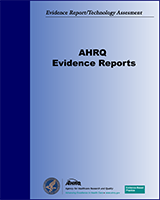|
NSAIDs VS NSAID n=1
|
Pannuti 1999
99291253 | Breast 47/137 (34.3%) lung 47/137 (34.3%)
Colorectal 15/137 (10.9%)
Other 52/137 (37.9%) | 2 "moderate"
(median, VRS scale) 5.3 cm (mean, VAS scale, range 1-10) | Metastases were in soft tissues 13/137
bone 76/137
visceral 17/137
no metastases 31/137
No other information about type of pain is stated |
|
OPIOID VS OPIOID n=6
|
Moolenaar 2000
20407008 | Lung 13/15 (86.6%)
Colon 2/15 (13.3%)
Larynx 2/15 (13.3%)
Kidney 1/15 (6.6%)
Esophagus 1/15 (6.6%)
Prostate 1/15 (6.6%) | not stated | not stated |
Heiskanen 2000
21075895 | Breast 2/27 (7.4%)
Lung 4/27 (14.8%)
Prostate 6/27 (22.2%)
Rectum 5/27 (18.5%)
Pancreas 4/27 (14.8%) Ovary 1/27 (3.7%) Unknown/other 5/27 (18.5%) | Pain intensity at baseline none or slight and escape analgesic doses <=2 per day. Baseline pain intensity was reached after a titration period. | Neuropathic: 4/27 (14.8%)
Nociceptive (bone metastases): 14/27 (51.8%) Nociceptive (visceral): 8/27 (29.6%) Mixed: 1/27 (3.7%) |
Hunt 1999
99414499 | Lung 7/30 (23.3%)
Prostate 3/30 (10%)
Kidney/bladder 4/30 (13.3%) Ovary/endometrium 2/30 (6.6%)
Colon/rectal 3/30 (10%)
Unknown 2/30 (6.6%)
Other 9/30 (30%) | not stated | not stated |
Bruera 1999
99349918 | Breast 2/6 (33.3%)
GI tract 2/6 (33.3%)
Prostate 1/6 (16.6%)
Kidney 1/6 (16.6%) | not stated | not stated |
Mercadante 1998
99032200 | Morphine group:
Lung 20%
Breast 15%
Colon 10%
Esophagus 0%
Liver 10%
Larynx 0%
Leiomioma 0%
Melanoma 5%
Ovarian 5%
Pancreas 10%
Rectum 15%
Stomach 5%
Uterus 5%
Methadone group:
Lung 30%
Breast 15%
Colon 5%
Esophagus 5%
Liver 5%
Larynx 5%
Leiomioma 5%
Melanoma 0%
Ovarian 10%
Pancreas 5%
Rectum 5%
Stomach 5%
Uterus 5% | "advanced cancer (that) required strong opioids for pain management" | Morphine group:
Somatic: 50% Visceral: 65% Neuropathic: 35% Incident: 25% Methadone group: Somatic: 70% Visceral: 60% Neuropathic: 25% Incident: 30% |
Parris 1998
99019888 | Breast, gastrointestinal, lung and gynecologic.
Percentages are not reported. | Mean±SE
CR group: 1.5 ± 0.1
IR group: 1.3 ± 0.1
(0-3 categorical scale, 0=none, 1=slight, 2=moderate, 3 = severe) | Bone pain: 45%
Visceral pain: 28% |
|
BREAKTHROUGH PAIN, n=1
|
Portenoy 1999
99165545 | Breast: 17 (26%)
Lung: 7 (11%)
Colon: 6 (9%)
Head/neck: 6 (9%)
Other: 29 (45%) | Mean (+/-SD) = 4.6+/-2.5 for persistent pain. Mean breakthrough pain intensity = 6 (0-10 numeric scale) | Inferred pathophysiology of the persistent pain: somatic: 29 (45%) visceral: 14 (22%) neuropathic: 22 (34%) Inferred pathophysiology of the breakthrough pain: somatic: 28 (43%) visceral: 14 (22%) neuropathic: 22 (34%) |
|
ADJUVANTS n=5
|
Dahm 2000
20462757 | Types of cancer not stated. Six patients suffered from non-cancer and 15 from cancer "refractory" pain. | "Patients were consecutively included in the study when a) the pain dominated the patients' life totally, b) other methods to provide acceptable pain relief had failed, and c) the patients showed intolerance to and/or unacceptable side effects from opioids." "Refractory cancer and non-cancer pain" was pain resistant, usually over a period of 6 months, to oral and/or parenteral morphine and to epidural infusion of opioid and/or local anesthetic, or IT administration of opioids and when other therapeutic alternatives were not applicable or had given unsatisfactory pain relief. | Not stated |
Mercadante 2000
99032200 | Lung: 4 (40%)
Histiocytoma: 2 (20%)
Bladder: 1 (10%)
Rectum: 1 (10%)
Uterus: 1 (10%) Unknown: 1 (10%) | Patients pain was unrelieved by their dose of morphine which ranged from 90 mg to 300 mg (orally). | somatic: 6/10 (60%)
mixed: 4 (40%) |
Lauretti 1999
99287592 | Oropharynx: 13 (27.08%)
Lung: 6 (12.5%)
Uterus: 1 (22.9%)
Prostate: 6 (12.5%) Liver: 1 (2.08%) Digestive tract:10 (20.08%) Kidney: 1 (2.08%) | Patients were suffering from cancer pain were systemic opioid/NSAID therapy was ineffective, or pain were presented with intolerance to systemic opioids.
No other information is provided. | Not stated |
Lauretti 1999
99287592 | Oropharynx: 18 (30%)
Lung: 8 (13.3%)
Uterus: 8 (13.3%)
Prostate: 7 (11.6%)
Digestevive tract: 14 (23.3%) Kidney: 1 (1.6%) Liver: 1 (6.6%) | The VAS scores for pain before the oral morphine treatment were:
CG: 7.6±1.9
DG: 7.6±1.7
KG: 7.4±1.5
NG: 7.9±1.6 | Not stated |
van Dongen 1999
99452099 | Lung/pleura: 4 (20%)
Prostate: 4 (20%)
Gastrointestinal: 5 (25%)
Geniturinary: 5 (25%)
Other: 2 (10%) | "refractory" non-malignant pain: 16/20 inadequate pain relief with "analgesic ladder";
4/20 unacceptable side-effects (sedation in 3, nausea in 1) | progressive cancer : mixture of continuous +/- intermittent, somatic +/- visceral +/-
neurogenic |
